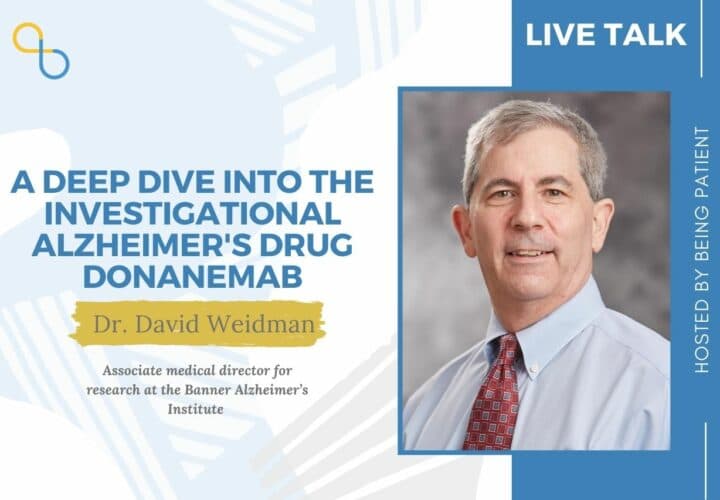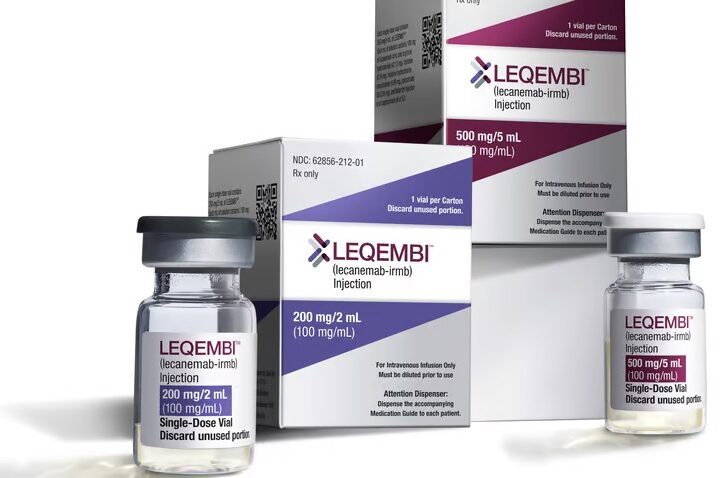Can Roche’s investigational anti-amyloid drug, gantenerumab, help slow down or even prevent Alzheimer's disease? Trials are underway.
The amyloid hypothesis—the idea that Alzheimer’s is caused by clumps of proteins known as beta-amyloid—remains unproven. But scientists are holding out hope that monoclonal antibody drugs like gantenerumab, which target these proteins, could help slow or halt the progression of the disease. Leveraging a similar mechanism to Biogen’s recently approved Aduhelm to fight the proteins many suspect are behind the disease’s progression, the investigational drug is now in Phase 3 trials, and in October of 2021, the FDA also granted the drug its breakthrough status designation, which will help accelerate its path toward approval, on account of promising results so far.
What is gantenerumab?
Gantenerumab is an antibody protein designed in a lab to target the toxic amyloid plaques linked to the onset of Alzheimer’s. After attaching to amyloid proteins, the antibodies attract immune cells that help eliminate the plaques. According to the amyloid hypothesis of Alzheimer’s, slowing plaque build-up will improve memory and cognition. Like Aduhelm, it targets toxic beta-amyloid plaques in the brain. But unlike Aduhelm, which is administered via periodic spinal injections, gantenerumab is designed to be more accessible, administered via injections under the skin which can be done at home.
(In February 2024, Biogen took Aduhelm off the market indefinitely.)
“This Breakthrough Therapy Designation reinforces our confidence in gantenerumab, which would be the first subcutaneous medicine for the treatment of Alzheimer’s disease with the potential for at-home administration,” Levi Garraway, Roche’s chief medical officer and head of global product development said in a statement.
Most Alzheimer’s treatments on the market today help manage symptoms, like memory loss — but they don’t get at the root cause. Roche hopes that gantenerumab will prove to be disease-modifying — meaning that it could halt or slow the progression of the disease itself, not just address the symptoms. Thus far, however, there is mixed evidence that the drug’s core intention — reducing plaque deposition in the brain — actually alters the course of the disease.
“We don’t understand the pathophysiology of Alzheimer’s disease, and we’re targeting something that [there is] huge evidence is linked to Alzheimer’s, but the causative role that it plays, we don’t know,” Roche’s pharma chief Bill Anderson told Fierce Biotech.
Do Alzheimer’s anti-amyloid drugs work?
The only FDA-approved Alzheimer’s drug that takes this approach, Biogen’s drug Aduhelm, is mired in controversy over whether it is effective. While some trial participants suspect the drug has helped them, self-reporting positive changes in their cognition, trial efficacy data is muddled.
However, there is still some evidence for the amyloid hypothesis in Alzheimer’s: Early data from Eli Lilly’s recent Phase 2 trial of the anti-amyloid drug donanemab showed signs that reducing plaque deposition may indeed modify the course of Alzheimer’s disease. Compared to other antibody drugs like Aduhelm, gantenerumab administration is quicker and easier — only requiring a five-minute-long injection rather than a one-hour long infusion.
Gantenerumab failed a first-hit Phase 3 clinical trial in 2014 that explored its efficacy with one specific type of Alzheimer’s, but Roche began testing it again in 2017 for other types of Alzheimer’s disease. Last year, a Phase 2/ 3 study found that, while the drug failed to prevent or slow the progression of cognitive decline in an inherited form of Alzheimer’s disease, it positively shifted many Alzheimer’s biomarkers.
Roche attributed the lack of efficacy could be explained by a low dose or differences with inherited versions of Alzheimer’s disease. Patients in these early trials were also much younger (aged 36 to 56) than those recruited for the upcoming trial (aged 50 to 90 years), which also may have skewed results. The company hopes their new trials — with a higher dose of gantenerumab — could lead to better outcomes.
What’s next for Roche’s gantenerumab?
The new Phase 3 trials, GRADUATE 1 and 2 will compare gantenerumab to placebo in people aged 50 to 90 years old, with mild Alzheimer’s or cognitive impairment, who are at risk of developing Alzheimer’s based on biomarkers in the cerebrospinal fluid or in the brain via imaging. GRADUATE 1 is currently recruiting new participants.
The trial will follow 2,000 participants for five years to determine whether gantenerumab prevents or slows the clinical progression of dementia. Additionally, researchers will evaluate whether the drug affects different aspects of cognition or improves biomarkers of the disease. If the trial proves successful, gantenerumab would be on track to receive an accelerated approval as early as 2022.
Correction 13 October 2021 3:38 p.m. ET: This article was updated to correct the age brackets for study participants and add updates about the status of the GRADUATE 1 and 2 phase 3 trials.
UPDATE: 3 March 2024. 9:00 P.M. ET. In February 2024, Biogen took Aduhelm off the market, citing financial concerns. Although the drug did receive accelerated, conditional FDA approval for the treatment of early Alzheimer’s disease in 2021, it is no longer available to new patients. The company announced it would sunset trials in May 2024 and cease supplying the drug to current patients in November 2024.




